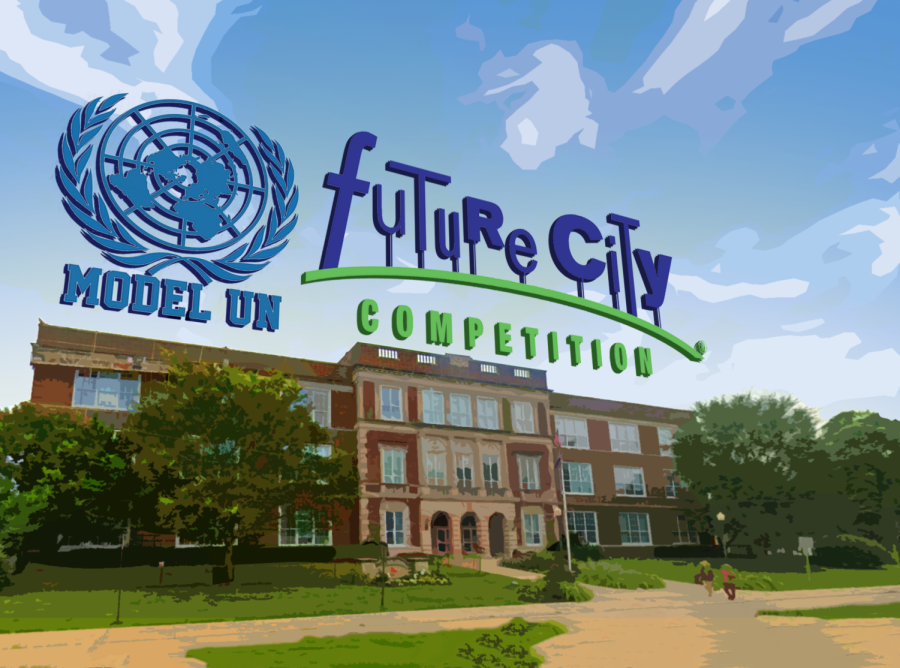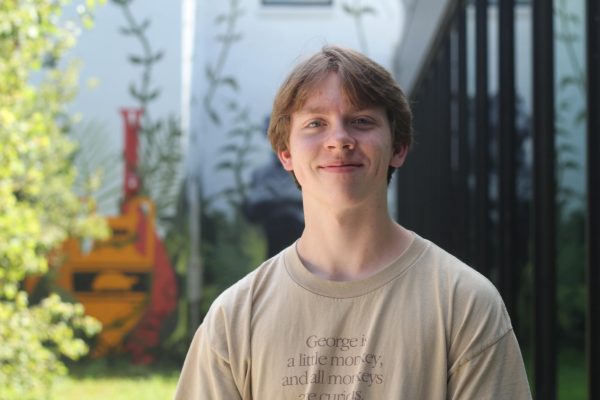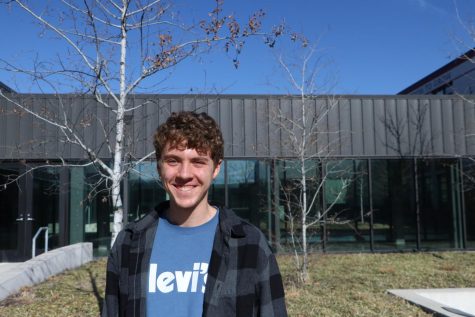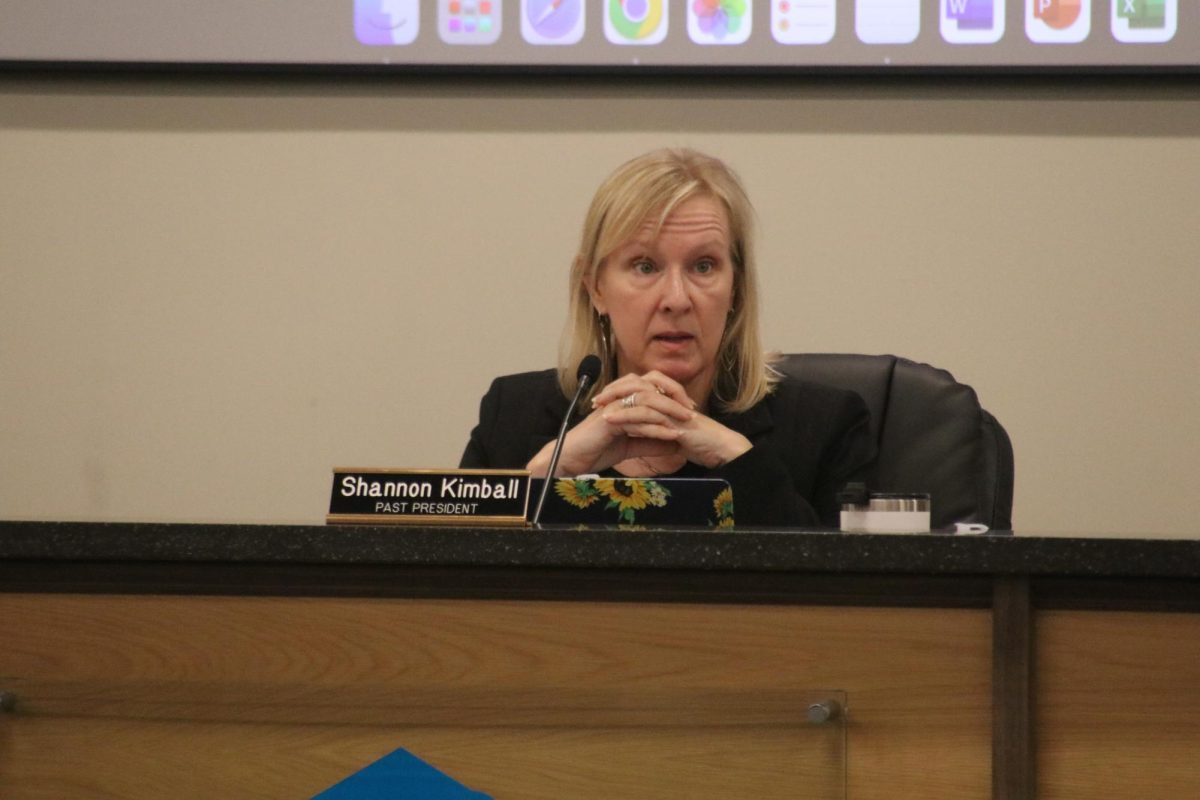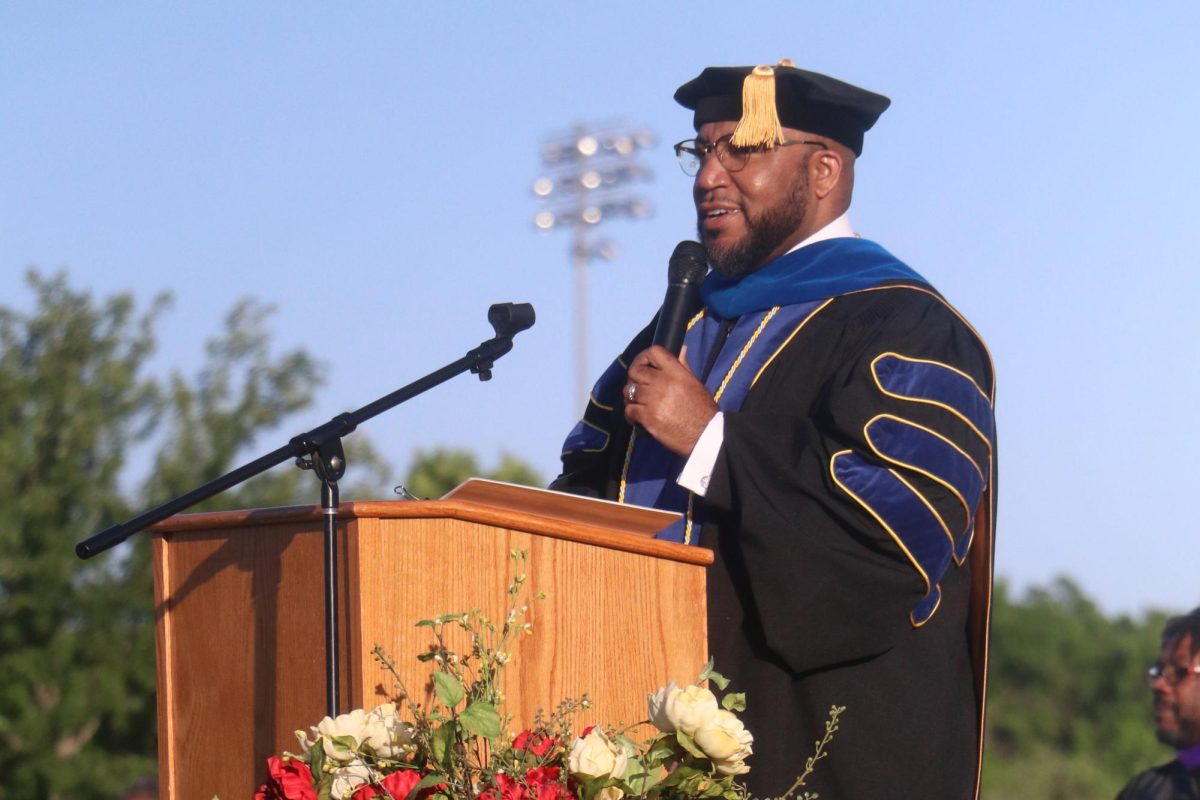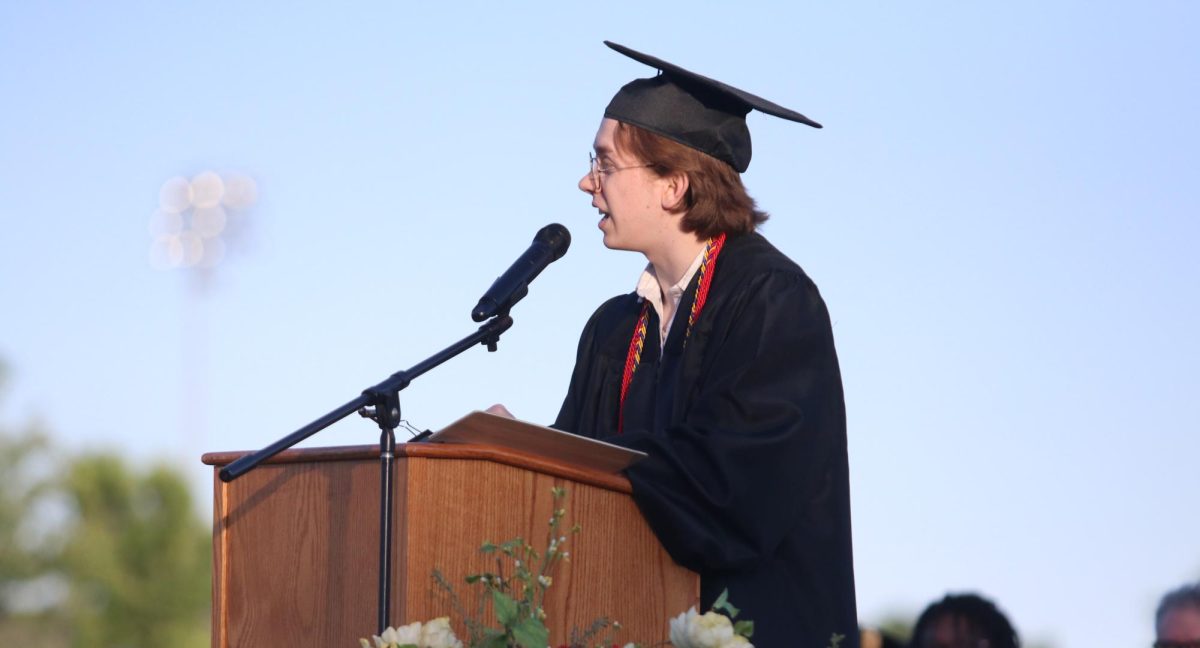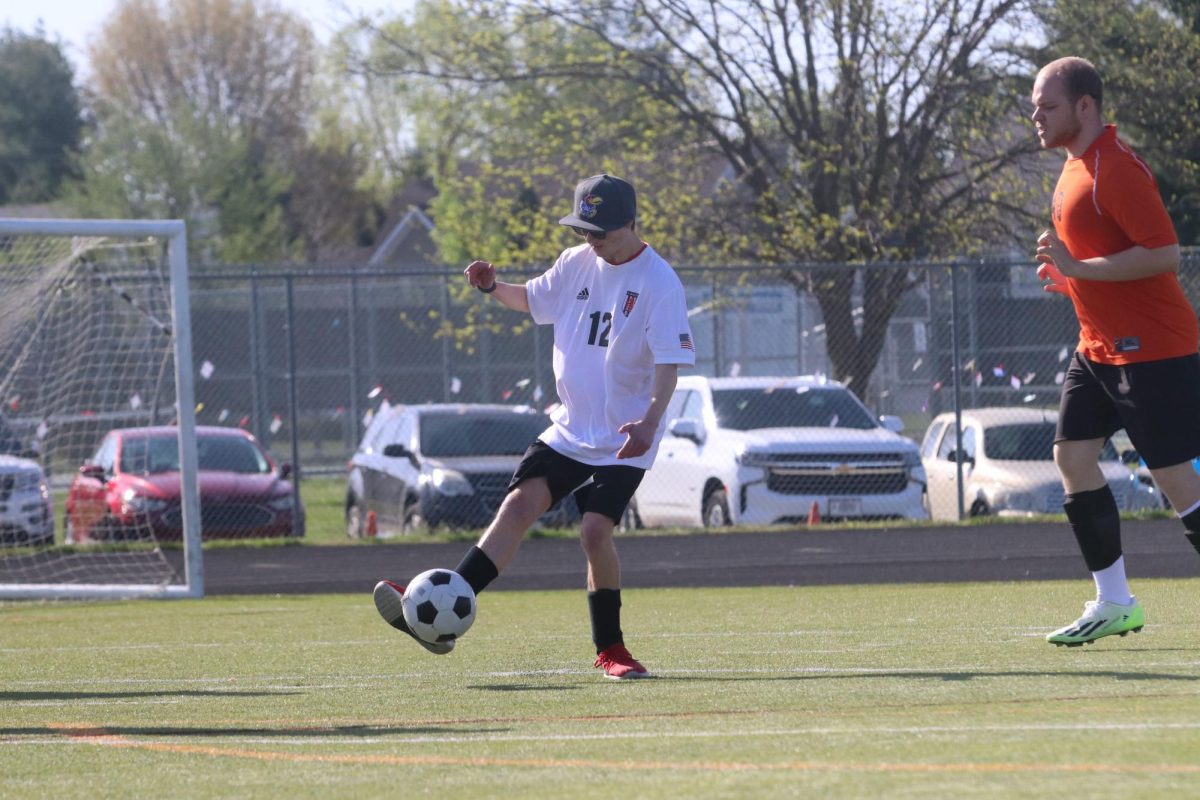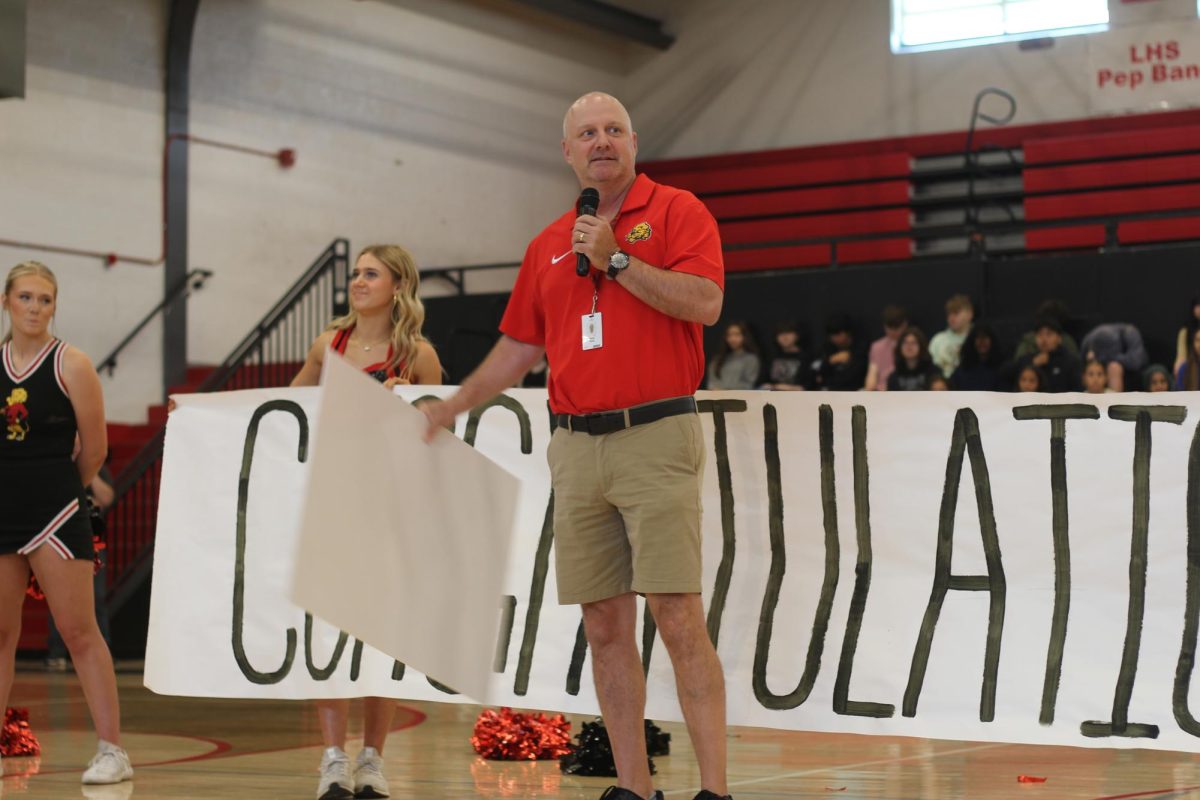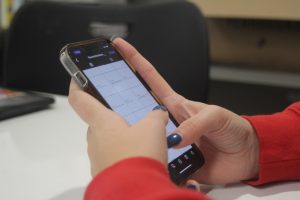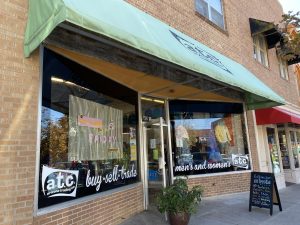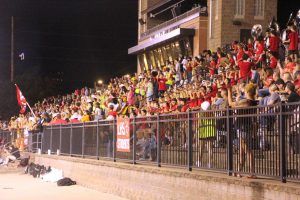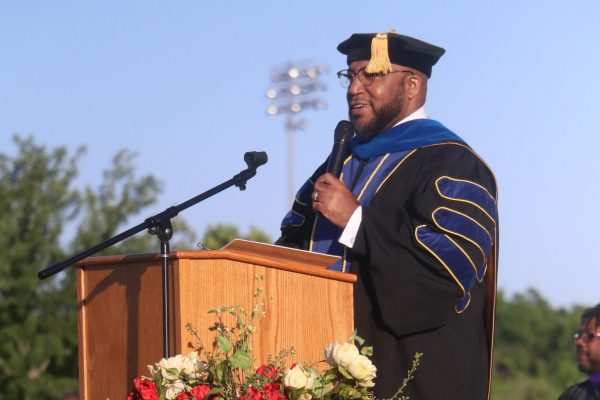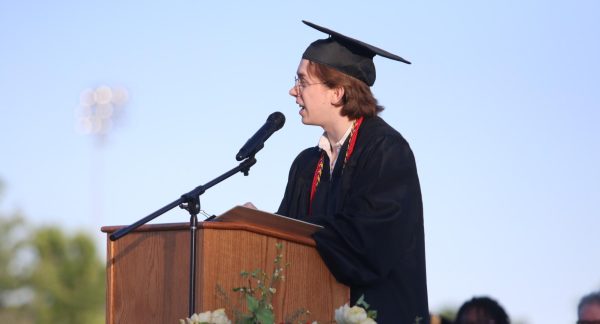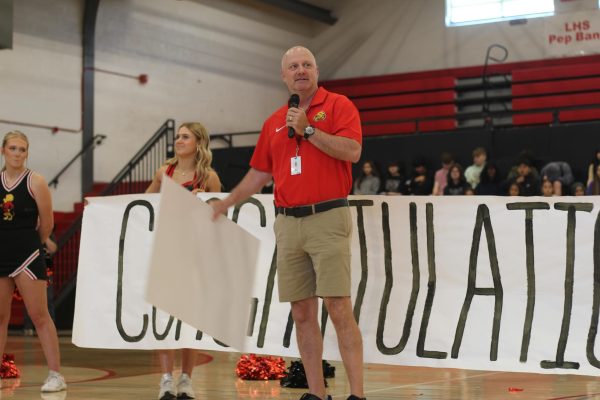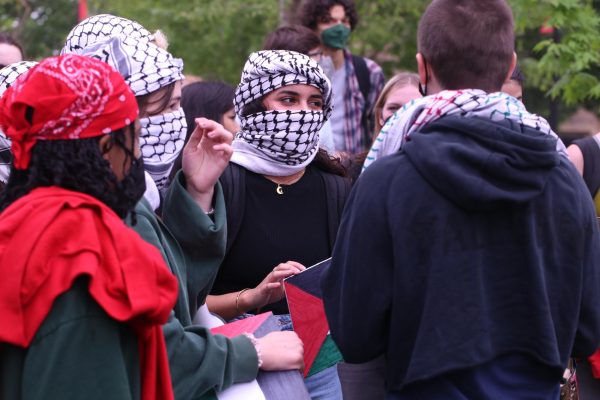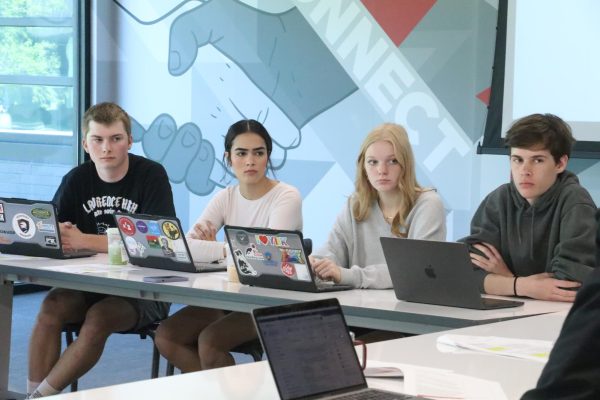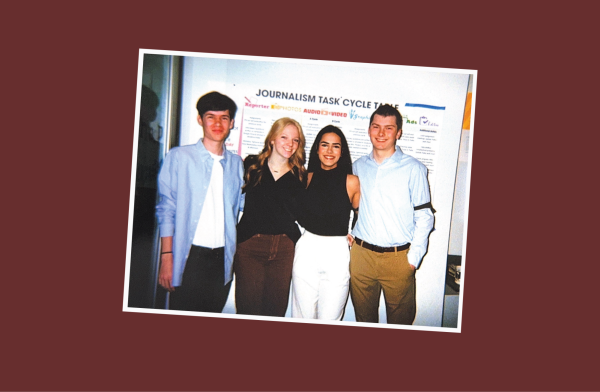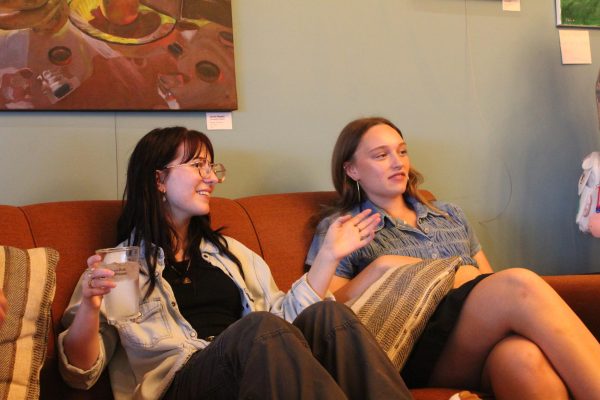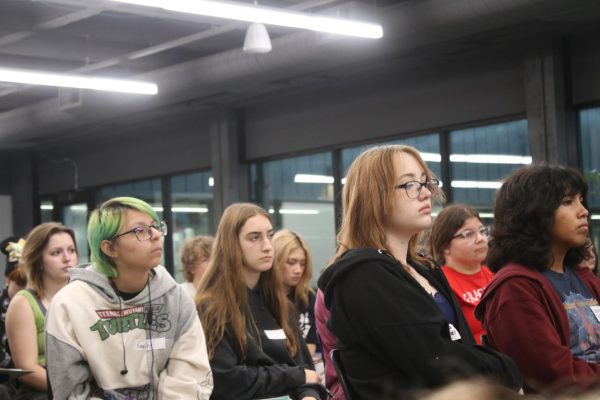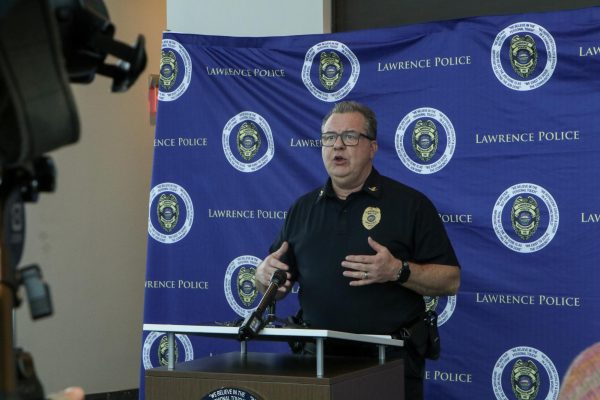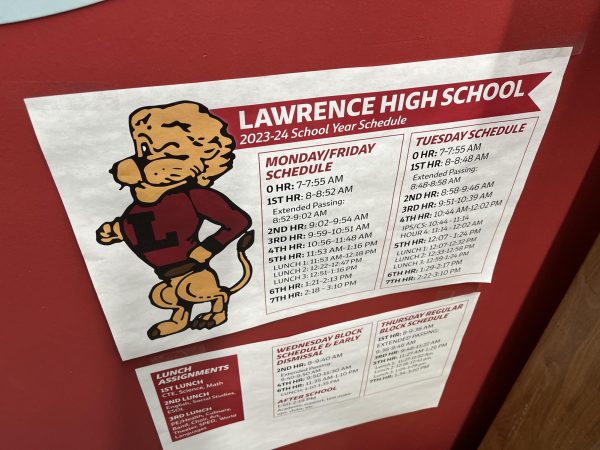Loss of middle school programs is devastating
The potential loss of Future City and Model United Nations is a travesty for students in the district
April 18, 2023
The district has made yet another massive blunder by diminishing students’ access to Model United Nations and Future City.
I can say with experience, they are two of the most beneficial, enlightening, and life-changing programs offered in Lawrence Public Schools. Yet, the district’s recent proposal to reduce them to mere after-school clubs would effectively put the nail in the coffin of these historically great educational programs for middle school students in USD 497.
Last month, Future City, Model United Nations, and National History Day all were effectively removed as options for middle school flex classes in a change to the schedule and curriculum. One didn’t have to look hard to see how impactful the programs have been. At the beginning of the board meeting in which the new schedule was approved, Southwest Middle School teacher Danielle Lotton-Barker — my mother — had brought her award-winning Future City team to be recognized by the board.
That meant that in the same meeting where her students celebrated a Regionals win and Nationals appearance, they were also informed their program would basically be ending.
District leadership condescendingly informed my mom and other advisers that they would still be able to continue their programs as clubs. Plenty of time would be left on the table for them to work with. Assuming these teachers have an endless supply of time.
Evidently, they don’t have an inkling of how hard she and her peers work.
Had they asked, they might have heard that as her teams near competition, which usually includes three to four groups of seventh and eighth graders, it’s rare to see her car roll up to the driveway until after at least 9:30 p.m. Beyond the time in her classes when she works with them, Ms. Lotton-Barker organizes weekend work days to help students build their models, holds regular after-school meetings to discuss the goals of all of her teams, and makes countless virtual calls to review their scripts and essays each night. She juggles her multiple Future City teams while also organizing Topeka Model United Nations participants (who can number from 30-50) all while staying on top of grading and making lessons, and managing each one of her gifted students’ IEPs.
Seeing her at home in the months of January and February is like spotting Big Foot. But our family knows exactly why she cares so much.
She works hard for her kids because she fully understands the benefit of having a challenging, collaborative project for students inside and outside of the gifted program. Her indisputable care for their work is not only evident in the immense amount of time she invests, but also in the quality of the products her students create.
Ms. Lotton-Barker has had eight different teams win regionals. Officially, only three of the students on the nationals teams are funded by Future City to attend nationals, but she always fundraises and contributes to make sure every team member who wants to attend has the opportunity.
Two months ago, I had the chance to travel with her nationals team to Washington, D.C., for their competition. While I admit I was initially more enticed by the opportunity to wander around museums while perhaps dreading the prospect of being surrounded by middle schoolers, I was actually astounded by the maturity and wisdom of the students.
The students on her team had grown through the countless hours spent learning everything about their city from the intricacies of municipality planning and engineering to the complications of providing free healthcare to citizens young and old. Whenever I would ask one of the kids about a part of the model, expecting a diluted response about the recycled materials they used, I would receive a detailed, informed response that I could tell was researched and prepared.
That being said, they were all still squirrely little knuckleheads. I could tell that as much as Future City offered them an opportunity to learn and apply themselves, it also presented them with an opportunity to have fun doing something they enjoyed with their friends. Beyond anything else, I could understand why they felt that way.
In middle school, I did not possess the physical aptitude to participate in sports. I most certainly did not meet the criteria of intellectual aptitude to merit an IEP. Yet I found a place in Devin Heath’s MUN class and my dad Kelly Barker’s Future City team.
When I went to Liberty Memorial, going up against Southwest in Future City was like playing the 96’-97’ Chicago Bulls. Since they had Future City as a class and we had it as a club, we never quite met the same standard. That being said we did hold our own and had a couple of close calls. The Lotton-Barker household during competition time was a dangerous place to be.
Model United Nations on the other hand was a whole different game. Since we used our flex hours to work on MUN we were always the top dogs from Lawrence. I’m sure it felt like being covered in chum in shark-infested waters whenever an LMCMS kid got up to give a negation speech.
Beyond anything else, both programs provided safety, inclusion, and of course education. My dad and Mr. Heath created fun and positive environments for kids of all walks of life and socio-economic status, regardless of IEP. That meant I found a space to express creative thinking, practice public speaking and performance, and make friends I still have to this day. I can’t imagine why those opportunities would be taken away.
District officials tried to explain during their meeting that since it can still be provided as an after-school activity, these activities will continue. I don’t think they understood, or really even tried to understand, how shortsighted that assumption was. Future City and MUN advisers are some of the busiest people in the district. Removing the element of in-class learning and working on these activities will force educators to reduce the amount of content for them and the way they deliver it. In fact, it likely will completely remove their ability to provide the activities at all.
In the past, these programs have thrived because they had the proper time and resources to succeed. Starved of those resources, we can’t expect that success to continue. There are only so many times we can say creative teachers will figure out how to make things work without realizing that’s just wishful thinking.
I visited West Middle School a few weeks ago where Ms. Lotton-Barker’s colleague Jess Miescher-Lerner held a Model United Nations conference to supplement the help Topeka conference because it had been shortened from two days to one. Despite all of the adversity bombarding them, she and her colleagues are still prioritizing students.
When I talked to students — some of whom I had traveled to nationals with — there was an air of trepidation. While they tried to focus on forming resolutions and amendments, their minds were also occupied with the thought that this was possibly the last time they would be able to represent their programs.
My mom and other advisers are working hard to try to keep these academic extensions during the school day. They say that kids shouldn’t have to school until after school to get the challenges that should be provided during their work day. Askin them to take these on as additional personal responsibilities is completely unreasonable.
On top of that middle schoolers are just as busy. Many kids participate in multiple clubs, sports, and other after-school activities on top of Future City and MUN. Asking those students to choose between these programs and their other activities is callous when it is completely reasonable and possible to provide them during instruction hours.
I understand that the middle school schedule that existed when I went to Liberty Memorial is no longer possible due to the drastic staff cuts currently being made. Diminishing these programs solves nothing in terms of equity for students, and merely continues to push additional responsibilities onto the backs of students and teachers who are already under massive amounts of stress.
Nothing makes me happier than knowing I was part of Future City and Model United Nations. Nothing makes me prouder than knowing that my mom has exposed so many students to valuable experiences through these programs. And above all else, nothing makes me angrier than knowing these programs may be cut short by decisions made so poorly with such insufficient information.



